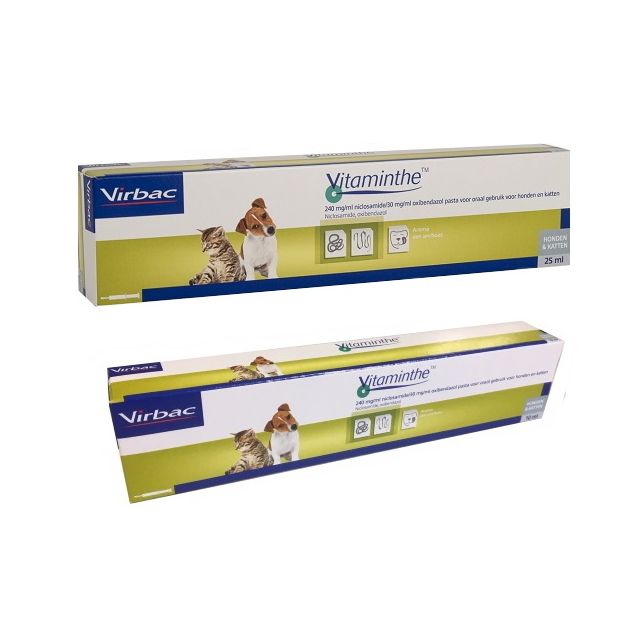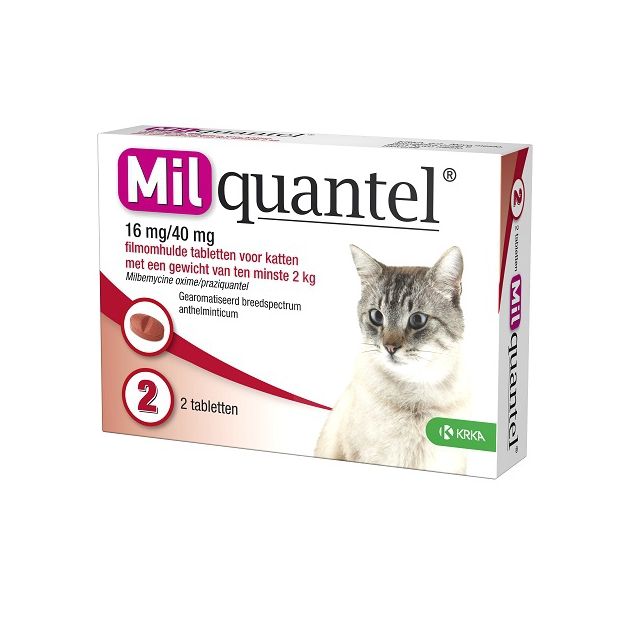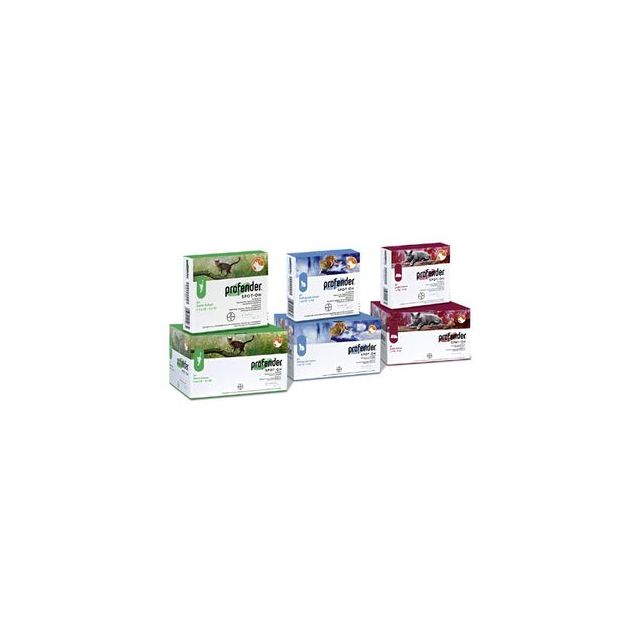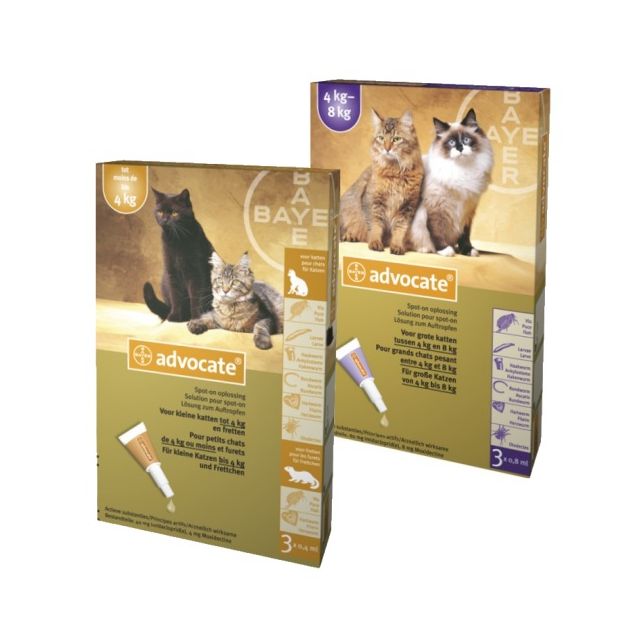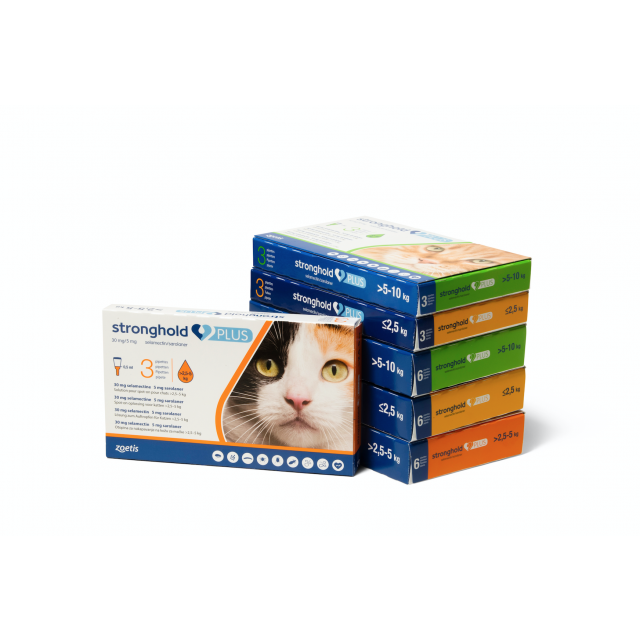Deworming kittens
How wonderful, a kitten in the house! Such a mischievous little creature that explores everything and tries to climb everywhere. In addition to toys, a basket, good kitten food, and various other necessities, it's also important to consider deworming your kitten. How often should you deworm your kitten? What is the best product for deworming your kitten? Pharmacy4pets is happy to help you choose the best deworming for kittens.
When should I deworm my kitten?
Since kittens can contract a roundworm infection through their mother's milk, it is important to deworm them along with their mother at the age of 3 weeks. The deworming should then be repeated every 14 days until 2 weeks after the last intake of mother's milk. After that, continue monthly until they are six months old.
If deworming is not done, a massive worm infestation can develop, which can cause lasting damage and even lead to the death of the kitten.
In practice, the deworming schedule for a kitten is as follows:
- Deworm at the age of 3, 5, 7, and 9 weeks. Then deworm once a month until the kitten is 6 months old.
After this, you can follow the schedule for an adult cat. How the deworming of a cat is carried out in practice depends on where the cat lives, whether it goes outside, whether it hunts a lot, and the time of year. Pharmacy4pets is, of course, ready to advise you on the right deworming for your cat.
Deworming for kittens
One of the most important things to consider when choosing a worming treatment for your kitten is its weight. For very young kittens, a worming paste is most suitable. For older kittens, a tablet or spot-on (a drop for the neck) is often more practical. For older kittens that go outside, the choice of treatment also depends on which worms are prevalent in the area. In areas where heartworm or certain tapeworms are present, it is important to choose a product that works against these worms. Cats that hunt a lot are also more prone to getting a tapeworm infection.
Worming paste for kittens
A worming paste can be administered orally or mixed with food. As with all worming treatments, it is important to give your kitten the correct dosage. Worming pastes have a handy adjustable ring for this purpose. Vitaminthe is an example of a worming paste for kittens. Note: Vitaminthe injectors are available in 5, 10, and 25 ml sizes. Only the 5 ml injector is suitable for use in kittens up to 9 weeks old! You can also choose Panacar PetPaste, which kills worms as well as the giardia parasite.
Worming tablets for kittens
Once kittens start eating solid food, they can be dewormed with a tablet (starting from 5 weeks of age). Milbemax, Milprazon, and Milpro offer tasty worming tablets specially designed for kittens, which your kitten will eat like a treat. They also work against tapeworm and heartworm.
Pipettes for worms in kittens
For picky kittens, a paste or tablet may not always be easy to administer. In that case, a pipette with liquid that you drip onto the neck (spot-on) is a practical alternative. From the age of six weeks, you can choose Stronghold to deworm your kitten. In addition to roundworms and heartworms, this spot-on also targets fleas, lice, and (ear) mites. Stronghold is only available with a prescription from your veterinarian. From the age of eight weeks, you can use Dronspot as a pipette for deworming your kitten.
Symptoms of worms in kittens
It is often assumed that worms must be visible in the feces or vomit during a worm infestation. And while that can be true, a kitten with a mild worm infestation often only passes worm eggs, which are not visible to the naked eye. So, you may not notice anything unusual with your kitten! However, a more severe worm infestation will lead to symptoms (in the worst case, even death) in your kitten. Possible signs of worms in kittens include:
- Swollen belly (the well-known “worm belly”).
- Diarrhea, possibly with blood in the stool.
- Stunted growth or weight loss.
- Dull, standing fur.
- “Spaghetti strands” (roundworms) or “rice grains” (tapeworm) in the feces or vomit.
- Vomiting.
- Coughing, difficulty breathing, heart rhythm disturbances (heart and lungworm).
- Itching around the anus (tapeworm).
- Anemia (pale gums, lethargy, rapid heartbeat, and breathing).
Even if you don't notice anything unusual with your kitten, it is still important to deworm them according to the schedule. They may still have worms without you realizing it, which could make them seriously ill later on. Some worms are also contagious to humans, especially to young children or pregnant women. Regular deworming of your kitten is therefore very important because prevention is better than cure!
If you have any questions about worms in your kitten or other products from Pharmacy4Pets, please contact us.

